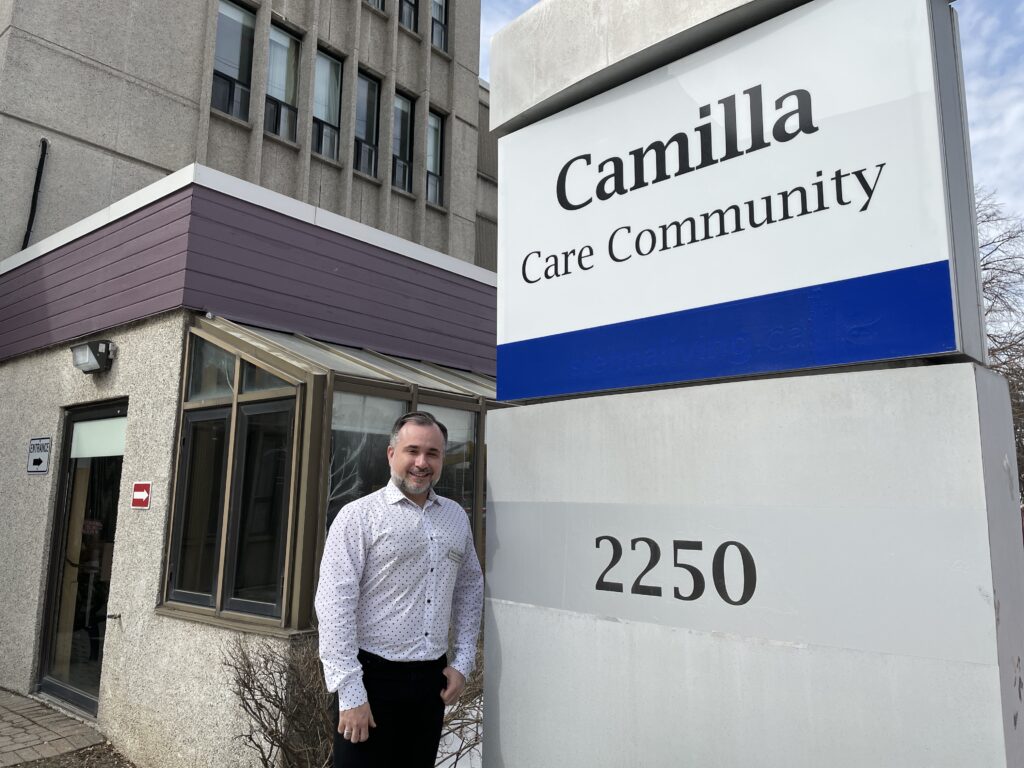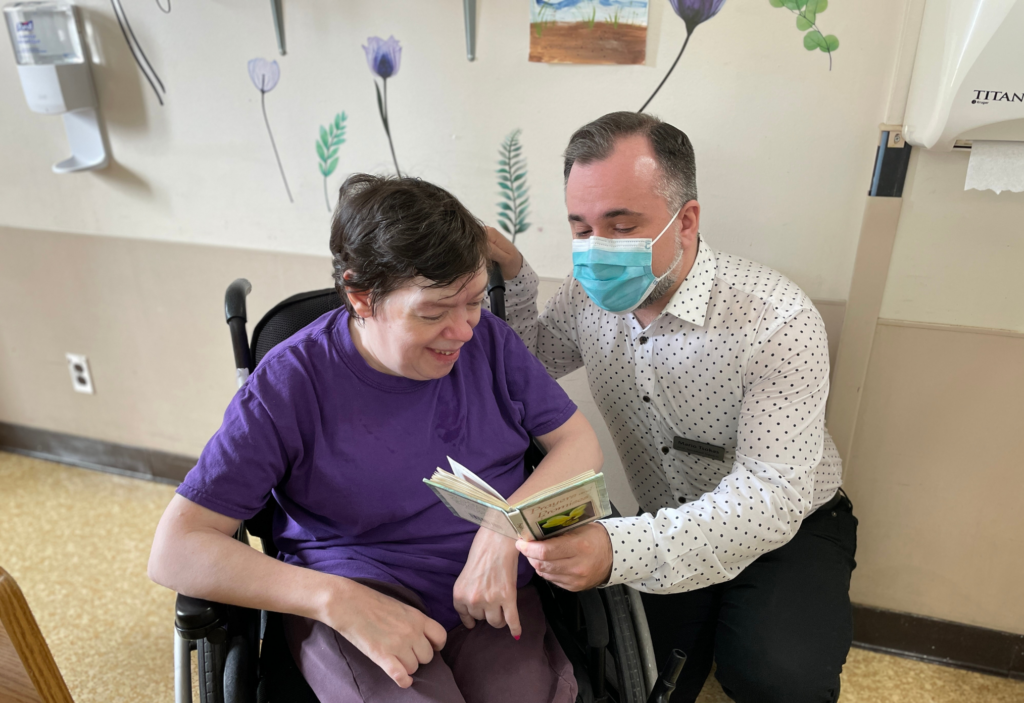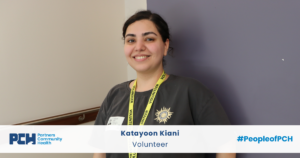Imagine you or someone you love is unable to secure a much-needed spot in long-term care. Documented responsive behaviours lead to a series of rejections. The wait for a bed becomes longer.
But what if there was an opportunity to learn more about who a person is beyond the words on the pages of their application. What if a conversation could help disprove assumptions about a person.
That’s exactly the approach Mario Tsokas, Lead of Specialized Supports at Partners Community Health, and his team took earlier this year to help welcome home a new resident to Camilla Care.
With his background in social work, Tsokas understands the power of building connections.
“It’s important to have conversations, ask appropriate questions, get to know a person and create a connection. Then, we can make an informed decision to support them and get them where they need to be,” he says.
Every day, social workers and those with social work backgrounds, like Tsokas, support people in navigating complex systems, like long term care. Their work demonstrates why the theme of this year’s National Social Work Month – “social work is essential” – rings true.
To mark National Social Work Month, Tsokas discusses the importance of implementing a person-centred approach in long-term care, and his plans for expanding his team to enhance the resident experience.
The power of connection
When there may be some ambiguity around the behaviour of a prospective resident, referring sites may challenge a rejected application.
An example of this took place earlier this year, when Tsokas and his team visited a prospective resident and conducted an in-person assessment to learn more about the person than what was written on paper.
“What we see on paper can leave us with assumptions,” says Tsokas. “When a person is experiencing responsive behaviours, we know that they’re trying to communicate unmet needs. For me, social work has really emphasized the importance of getting to know who a person is beyond the diagnosis. Looking at the individual from a holistic lens and understanding their values, beliefs and life story not only fosters a connection, but also helps us identify potential reasons for their responsive behaviour and set them up for success in the long-term care environment.”
After a successful session and conversation, the team was able to welcome home the resident to a short stay bed at Camilla in January. The short stay bed program at Camilla provides an opportunity for short-term stays (less than six months) and can include respite care, rehabilitation care and interim care options.
Since admission, the resident has been observed enjoying Camilla’s recreation programs, and building relationships with staff and other residents.
“It’s important to incorporate a person-centred approach where we develop a care plan that isn’t solely focused on the person’s disease or diagnosis, but also addresses how the team can support a person’s emotional, mental, spiritual and social health as well,” he says. “This social model of care truly starts right from the admission process, and it can be life changing for prospective residents.”
Building a team
The admissions process is just one of many portfolios Tsokas oversees since joining the team at PCH in December 2022. With over 17 years of experience in geriatrics, Tsokas now leads a team of social workers, resident and family experience coordinators, and Behavioural Support Ontario (BSO) staff.

He works with his team to improve processes, skills, and knowledge transfer in the management of responsive behaviours associated with persons living with dementia and mental illness, and promotes a culture of practices that support a person-centered, social model of care.
Over the next several months, Tsokas has his sights set on accomplishing a few monumental goals at Camilla, including increasing the number of social workers, strengthening the admissions process, and enhancing the palliative program to make end-of-life care a comfortable and dignified experience that factors in a person’s emotional, spiritual and social needs.
“I’m excited to keep growing my team of social workers and continue enhancing the resident experience,” says Tsokas. “What’s unique about social workers in long-term care is that they can form connections with residents, other team members, and the community to bring a holistic approach to resident care. Social work truly is an essential part of the long-term care environment.”
Together with his team, Tsokas also hopes to implement “All About Me” and “Pieces of My Personhood” documents for each resident that share their story so that other staff members have a comprehensive understanding of who each resident is, what their values are, and how they like to communicate.
“When you form a connection with someone, you show that you truly value the person first,” says Tsokas. “Learning about who a person is, even something as simple as their nickname, is so crucial because that way when we’re welcoming them home, we know we can provide a good first and lasting impression.”





